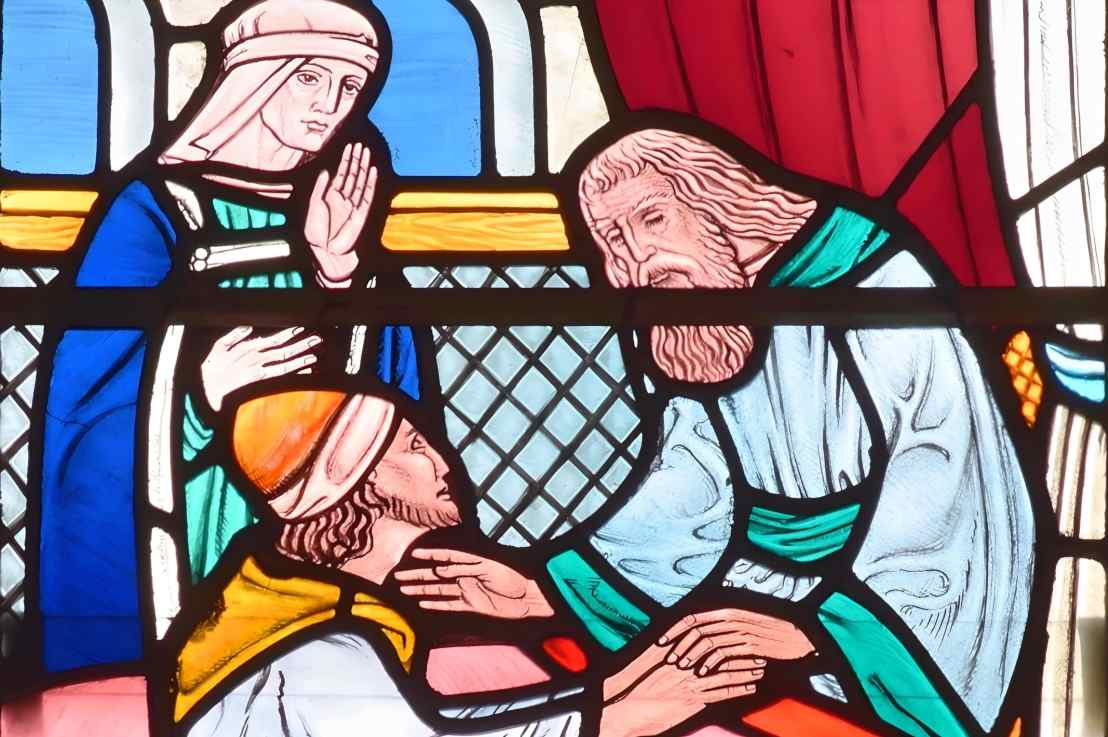Twenty years after her marriage to Isaac, Rebekah gave birth to twin boys. They were named Esau and Jacob. Esau, the first born, was Isaac’s favourite while Rebekah preferred Jacob, the younger son. Esau was a hairy redhead who grew up to be a skilful hunter, while Jacob was quieter and preferred to stay at home.
Esau, as the first born, was heir to the blessings that God had promised to Abraham and his descendants. However, he didn’t see the value of this privilege. In fact, one day, on returning home hungry after a hunt, he agreed to sell his birthright to Jacob in exchange for a single bowl of stew.
In his old age, Isaac unfortunately lost his eyesight. Knowing that he did not have long left to live, he decided that the time had come to pass on God’s blessing to Esau. Isaac told his eldest son to go hunting for some game and then return to his bedroom with a tasty meal made from what he had caught. Then, Isaac said, he would give Esau his blessing.
His wife Rebekah overhead this and came up with a plan to trick her husband into giving Jacob the blessing instead. She dressed Jacob in Esau’s clothes and covered his hands with goatskin, so that he would seem hairy, like his elder brother. His mother then made the tasty meal Isaac had requested, which Jacob took into him.
Entering the bedroom, Jacob pretended to be Esau, telling his blind father that he was returning with the meal he had asked for. Hearing Jacob’s voice, Isaac wasn’t convinced it really was Esau. However, when he touched his hairy hands, he relented and gave him his blessing.
When Esau found out what had happened, he was furious with Jacob. Full of hate, he decided that once Isaac was dead, he would kill his brother. Rebekah learned of this threat and advised Jacob to go abroad to live with his uncle, Laban, until Esau had calmed down. He took her advice and only years later would he have a happy yet tearful reunion with his brother.
Rather than describing him as a victim, Scripture says that Esau was a “worldly-minded person.” (Hebrews 12:16) He married foreign wives and made his parents’ lives miserable. He showed disdain for the birthright that would involve his descendants obtaining blessings for the world. And he even harboured murderous thoughts about his own brother.
On the other hand, Scripture describes Jacob as “a righteous man” and one of God’s “faithful servants.” (Wisdom 10:10; 2 Maccabees 1:2) This is interesting, given that he lied to his father about a serious matter. Over the centuries, this has led to an extended discussion among theologians about the morality of what he did.
Some have argued that Jacob only became a saint later in life, while others have laid the blame mostly at Rebekah’s door. In any case, Jacob got his comeuppance when his uncle Laban tricked him into marrying Leah, his eldest daughter, instead of her younger sister, Rachel.
This stained glass scene of Jacob obtaining his father’s blessing by deceit is found with Sacred Heart and St Teresa’s, in Coleshill. Created by Gilbert Sheedy in 1950, it was designed to illustrate the Fourth Commandment, which requires children to honour their parents (Exodus 20:12).
See the full image:

Where to find this work of art
Sacred Heart and St Teresa’s, Coleshill
Read the relevant passage
Genesis 27:1-45
On a similiar theme
- From the Old Testament: Jacob’s mother, Rebekah, had long believed that her sons would be rivals.
- From the New Testament: The Parable of the Prodigal Son reflects elements of the story – an older brother resenting the younger, squabbles over an inheritance and a father caught in the middle.
